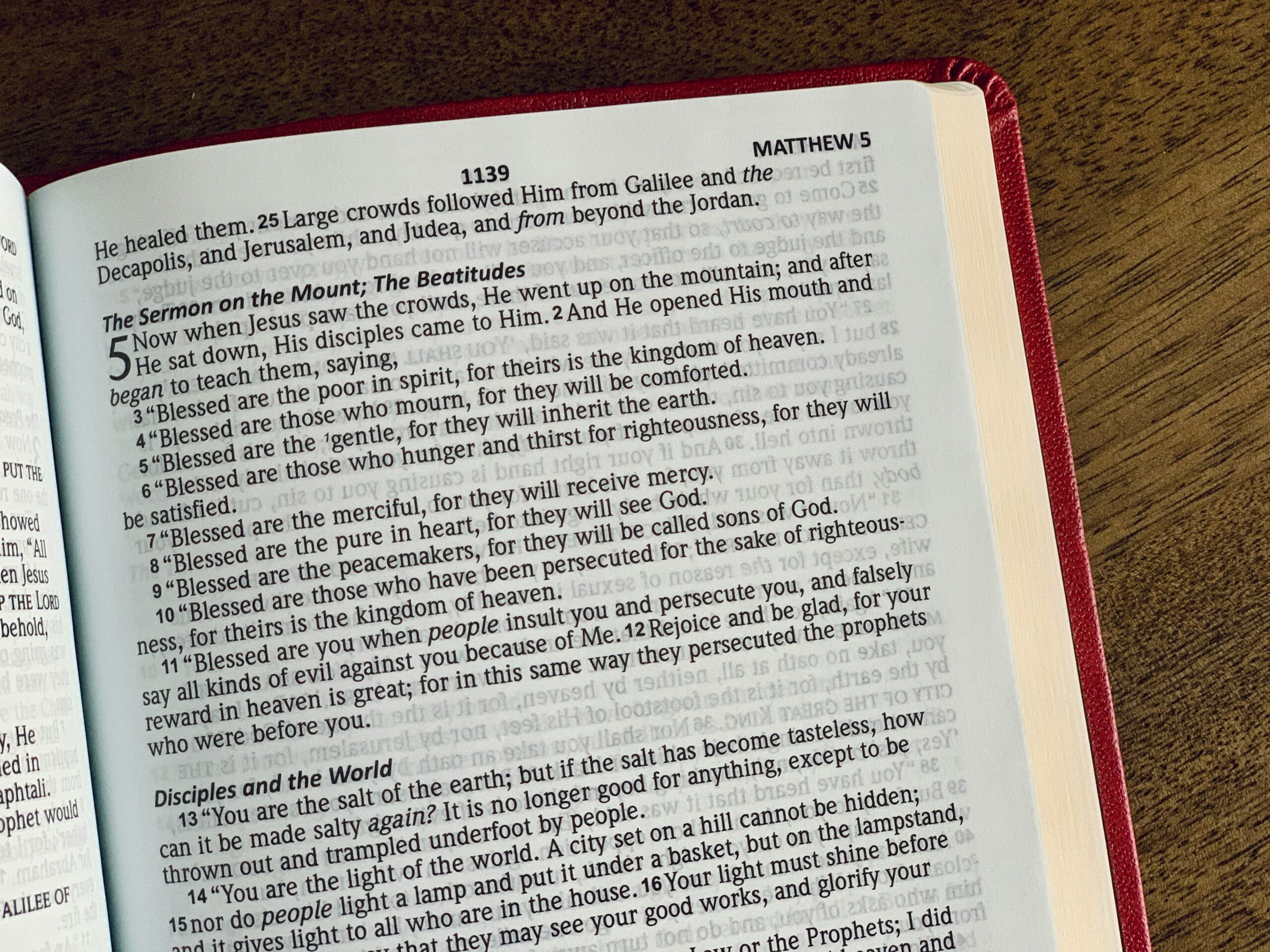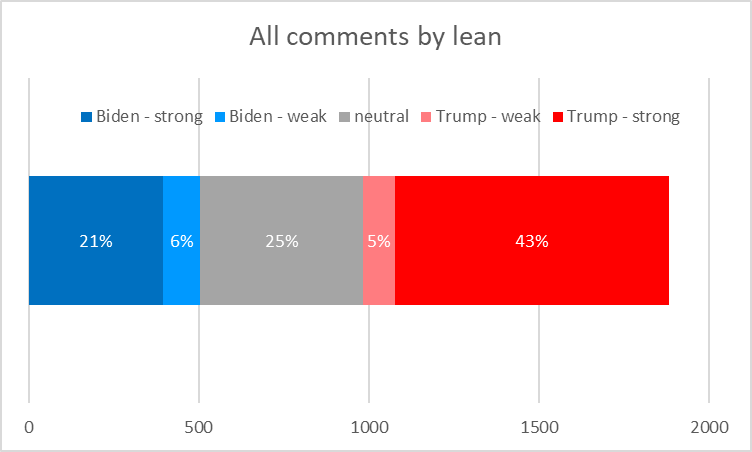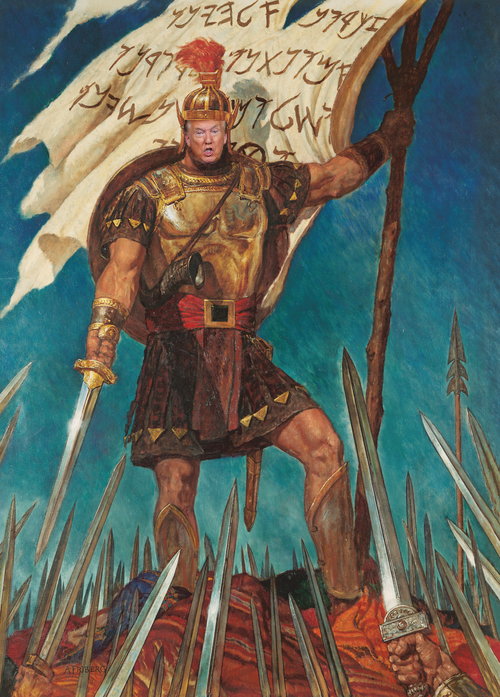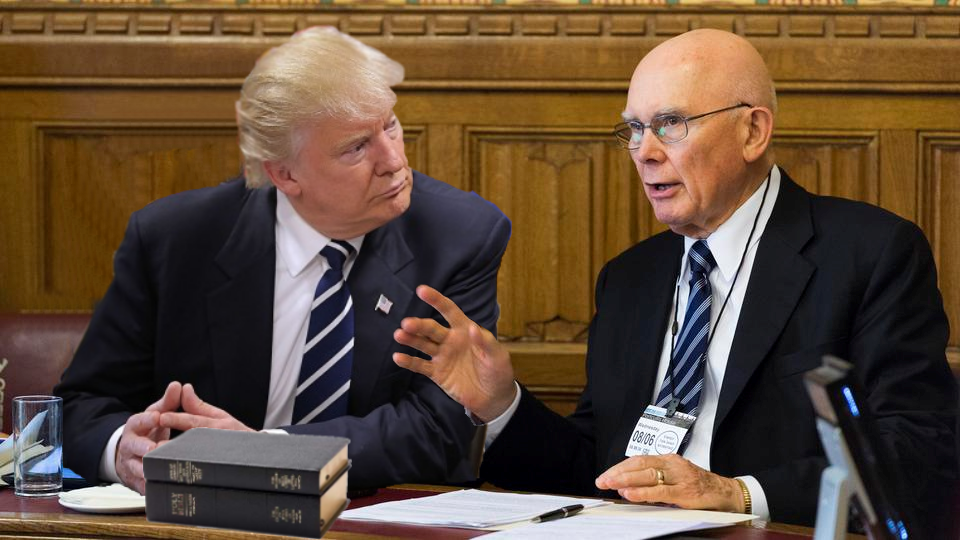I read a comment recently at W&T about Church members in Arizona being split on whether Trump embodies Latter-day Saint values, with most believing he does, and a minority disagreeing. (I’m not linking to the comment because on a quick search, I couldn’t find it.) As you can guess if you’ve read ZD much, I’m very much with the minority.
But it did get me to thinking that clearly there’s some connection that can be drawn between Trumpism and Mormonism that so many Church members are picking up on. After some thought, here are some LDS principles I think Trump follows or exhibits that make him feel so right to so many American Mormons:
- Patriarchy: Trump clearly has little use for women holding positions of authority. Similarly, the LDS Church gives women very little institutional authority, having all-male leadership both at the general and local level. While Trump and the Church obviously disagree about rules around sex, they agree that women are the attractive objects who are responsible for it. Perhaps Trump’s largest-looming legacy will be appointing judges to get Roe v. Wade overturned so states could restrict or ban abortion. Similarly, while GAs claim to believe in sometimes permissible abortion, the way they talk about the issue makes it pretty clear they expect these to be so rare as to be irrelevant.
- White supremacy: Trump is a thoroughgoing, unapologetic racist. On the Church side, while it has made some steps in recent years with occasional nice statements about racism being wrong, the racial makeup of the leadership still shouts white supremacy. The unapologized-for and now carefully waved away century plus long priesthood/temple ban still shouts it. The racist justification for the Lamanites’ dark skins in the Book of Mormon still shouts it. It’s no surprise that lots of Church members are happy to embrace Trump’s racism.
- Prosperity gospel: Trump is wealthy. He may have driven many businesses to bankruptcy, but he at least has the appearance of having a lot of money. He signed into law a tax cut strongly weighted toward him and his wealthy friends. The Church similarly has a problem with worshiping wealth. Men called to be GAs are typically businessmen and lawyers, and typically well-off. Along the same lines, at the local level, bishops and their counselors typically have white collar jobs. The Church spends a lot of money to make temples look fancy in ways that echo Trump’s love of plating things with gold. The Church’s requirement of tithing, which is a disproportionate burden for poorer people, makes it a more comfortable place for better-off people. While the prosperity gospel may not be taught in as many words, there is a lot of coded language that gets passed around like “self reliance” and Ezra Taft Benson’s famous line about people to take the slums out of themselves.
- Nationalism: Trump is deeply concerned about the United States not being powerful or white enough. (This point is of course connected with white supremacy.) He doesn’t want the country involved in alliances like NATO, and he’s suspicious of trade agreements. He’d rather slap tariffs on imports to show other countries who’s boss. He hates immigrants, legal or not. In the Church, while there have been movements toward becoming more seriously international, the headquarters is still in the US, and the top leadership is still largely American. The influence of Ezra Taft Benson’s paranoid America-firstism may not be as strong as it once was, but it’s far from gone. We also still have things like God saying in our scriptures that he inspired the US Constitution and GAs (and former GAs) who are clearly America worshipers. One disconnect with Trumpism is that many American Mormons have served missions in other countries and tend to be more pro-immigrant than Trumpists in general.
- Authoritarian control: Trump hates any checks on his power. He openly mused while president about becoming president-for-life, he called for the 2020 election to be postponed, and when it turned out not in his favor, he tried to have it overturned. He hates having reporters check him on his fabrications or publish anything critical of him. In the Church, while we have some nice aspirational statements like Joseph Smith’s “teach them correct principles, and they govern themselves,” we have far more a norm of leaders directing and members following. GAs are so unwilling to accept feedback from the rank-and-file that they periodically send a letter telling us we can raise issues no further than our stake presidents, and we should never contact them directly. Another very telling example is that we’ve turned the sustaining vote from an actual vote as it was at the beginning of the Church to a loyalty test, where anyone voting opposed on any calling is doing nothing but marking themselves as suspect.
- Revering elders: Trump is an old man. For Latter-day Saints raised to revere the authority of GAs who are old men, he fits right in (not even to mention that he’s white and wealthy).
It’s quite a bit, actually, that Trumpist Latter-day Saints are picking up on. Interestingly, I think it’s more often unspoken than spoken issues. For example, the Church doesn’t come out and say “women are lesser,” it just treats them differently. Or GAs don’t (any longer) say that people of color are lesser than whites, they just try to pretend the priesthood/temple ban never happened.
But I still disagree with Trumpist Mormons. Even if he’s a good example of white Christian nationalism, he utterly fails at any scriptural or other Church righteousness test. Let me give you a few.
In the Beatitudes in Matthew 5, Jesus pronounces blessedness on the following:

- The poor in spirit.
- They that mourn.
- The meek.
- They which do hunger and thirst after righteousness.
- The merciful.
- The pure in heart.
- The peacemakers.
- They which are persecuted for righteousness’ sake.
None of these match Trump in the slightest. I imagine his supporters might argue that the last one does, because he’s widely hated for his righteousness in getting Roe v. Wade overturned. I totally disagree, as I don’t believe allowing or enacting abortion bans is righteousness. But even setting that one aside for the sake of argument, can you imagine anyone who fits this list worse? The meek? The merciful? The peacemakers? Trump is full of bluster, anger, and cruelty.





